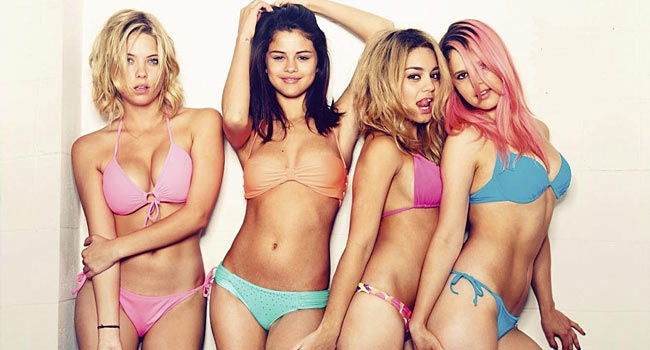
Korine takes the “spring break forever” lifestyle and pushes it to the breaking point. Spring Breakers is already one of the best American films this year.

Korine takes the “spring break forever” lifestyle and pushes it to the breaking point. Spring Breakers is already one of the best American films this year.
When the news came out that Harmony Korine, director of Gummo, Julien Donkey-Boy and Trash Humpers, was making a movie about spring break involving James Franco and Disney starlets, the reactions ranged from shock to boundless excitement. Korine’s sudden thrust into the mainstream shouldn’t come as too much of a surprise given the subject matter; Spring break is one of the more socially accepted forms of depravity, and Korine, who’s well-known for his depraved films, seems like a perfect match for making a movie about the one time of the year college-aged kids go nuts for. Korine has seemingly found the perfect niche to get him into multiplexes, and it’s an ingenious move on his part. Spring Breakers may have its pulse on what’s popular today, but Korine’s vision is still uncompromising as ever.
Spring Breakers opens in a Midwestern town where four best friends are trying to find a way to Florida for spring break. Candy (Vanessa Hudgens), Brit (Ashley Benson) and Cotty (Rachel Korine) are the hard partiers in the group, while Faith (Selena Gomez) is struggling between her desire to party and her Christian background. The four don’t have enough money to make the trip, prompting them to steal a car and use it to rob a restaurant. The robbery is the first of many great sequences, with Korine filming the girls from the getaway car outside as it circles the building. With their money raised up, the four hop on a bus and head for Florida.

Their plans for spring break are soon cut short when all of them get arrested, but within hours they’re bailed out by a local drug dealer and rapper named Alien (James Franco). Up to this point, Spring Breakers had little to no narrative outside the girls’ eagerness to experience spring break. With cinematographer Benoît Debie (known for working with Gaspar Noé) and editor Douglas Crise, Korine lets his film unfold like one long montage. The story periodically bubbles to the surface between moments of the characters either ambling about or partying it up. Franco, whose teaming up with Korine is a match made in heaven, suddenly snaps things into focus once he enters the picture.
Faith goes back home after the arrest and Alien’s lifestyle kills her desire to stick around, but the other three stay behind and join Alien as his partners in crime. This is when Spring Breakers finally lives up to the insanity of its premise, with a sequence involving Alien getting emasculated (in a way I won’t begin to describe here) followed by a montage with Britney Spears’ “Everytime” that’ll become one of the year’s most memorable scenes.
The high of those two scenes are never matched again, with a gang war involving another drug dealer (Gucci Mane) suddenly taking over the storyline. Spring Breakers’ liquid narrative starts to wear thin around this time as well, with Korine’s use of repetition and montage getting more frustrating as the structure coalesces into something more conventional. Despite the sluggish final act, Spring Breakers is already one of the best American films this year. Using the hyperstylized, neon-lit aesthetics associated with today’s MTV generation, Korine takes the “spring break forever” lifestyle and pushes it to the breaking point. If anything, Spring Breakers shows just how blurry the line is between the fun and horror of spring break.